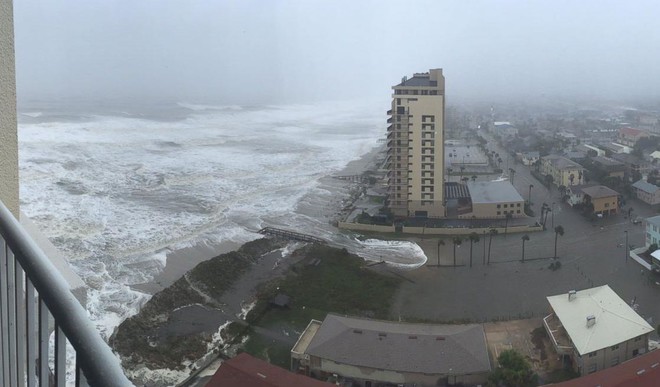Coastal cities in the United States could experience “once in a lifetime” extreme flood events almost daily by the end of the century if sea levels continue to rise at current rates, new research showed on Thursday.
Emissions from burning fossil fuels have already warmed Earth more than one degree Celsius above pre-industrial times, melting polar ice sheets and boosting global sea levels.
With oceans predicted to rise by one to two metres by 2100, researchers in the US looked at the frequency of extreme water levels measured by 202 tide gauges along the US coastline.
They combined this data with various modelled pathways of sea-level rise to predict the rate at which flooding events may increase in future.
The results were stark: at nearly three-quarters of the gauge locations the difference between average high tide and a once-in-50-years flooding event was less than a metre.
Most temperature scenarios predict sea-level rises higher than that.
The team also found that the risk of extreme flood events will double every five years on average as seas get ever higher.
This likely means profound impacts on major US cities including Miami, Atlantic City and Charleston in the decades to come, the authors concluded.
“In the absence of adaptation measures, the rate of coastal hazard impacts will likely double every five years, and this is indeed quite problematic,” lead study author Sean Vitousek, from the United States Geological Survey, told AFP.
“Miami, Honolulu, Charleston, Atlantic City, and many other US cities currently experience minor flood levels during tides exacerbated by any storm conditions.
“If sea-level projections hold, and in the absence of adaptation by 2050, this flooding will become much more widespread, frequent, and severe.”
A special report from the Intergovernmental Panel on Climate Change last year concluded that oceans could rise 1.1 metres by century’s end.
But Vitousek said rising oceans would cause “widespread disruption of transportation due to road closures during spring tides” much sooner, perhaps by 2050.
On current rising trends, by 2100 some areas of coastal cities would become “practically uninhabitable”, he warned.
“However, even before this point, large storm events plus sea-level rise would likely exceed the infrastructure’s design conditions resulting in widespread damage,” Vitousek said.
“We’re not ready, mentally or physically, for one metre of sea-level rise, but it’s coming and probably sooner than we think.”
AFP

 Join Daily Trust WhatsApp Community For Quick Access To News and Happenings Around You.
Join Daily Trust WhatsApp Community For Quick Access To News and Happenings Around You.


